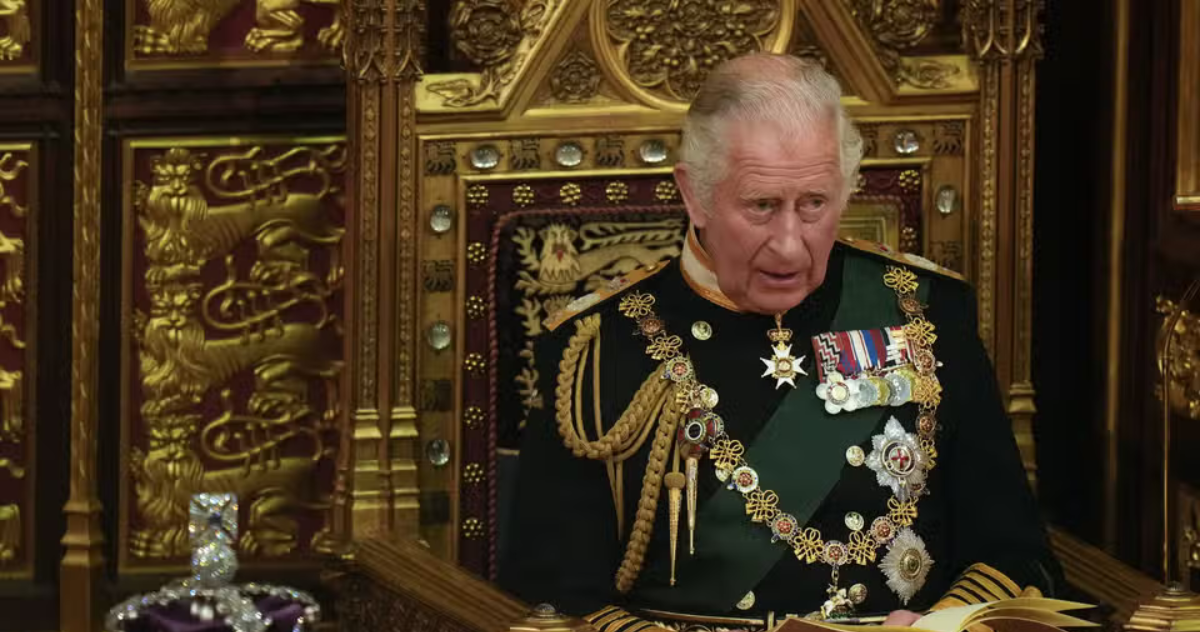London (Parliament Politic Magazine) – The aftermath of the Israel-Gaza conflict took center stage in the UK Parliament’s discussions on Tuesday, following the first speech from King Charles III in 70 years. Both Prime Minister Rishi Sunak and opposition leader Keir Starmer used their responses to King Charles III’s government agenda outline to draw attention to the violence in the Middle East.
Mr. Sunak stated that he wouldn’t call for a ceasefire, as he believed it would only solidify Hamas’s positions and allow them to continue their attacks against Israel. Mr. Starmer emphasized that Israel had the right to defend itself, but he cautioned that this right was not an unlimited endorsement and stressed the importance of Israel’s compliance with international law in Gaza.
Intense Debates in British Parliament Over the Gaza Conflict
According to the Hamas-run Health Ministry, more than 10,000 Palestinians have lost their lives in the bombing campaign, while on October 7, militants reportedly killed 1,400 people in Israel. In his first speech as the crowned monarch following the passing of Queen Elizabeth II, King Charles III condemned the “barbaric acts of terrorism against the people of Israel.”
He also expressed the need to “facilitate humanitarian support into Gaza and support the cause of peace and stability in the Middle East.” In response to calls from some Labour MPs for Mr. Starmer to advocate for an outright ceasefire, he instead proposed a “humanitarian pause” and urged for the release of more than 230 hostages held by Hamas. He revealed it to the MPs:
Every day in Gaza brings with it more pain, suffering and agony,” he told MPs. “Thousands of civilians have died including innocent women and children.” The Prime Minister repeated his plea for a humanitarian pause to facilitate the delivery of aid into Gaza and to ensure the safe release of hostages and foreign citizens.
“But a unilateral and unconditional ceasefire would simply allow Hamas to entrench its position and continue attacks against Israel,” he warned.
British Government Won’t Tolerate Hatred
According to the Prime Minister: “Only last week, Hamas reiterated its intentions, stating clearly it will repeat the October 7 attack time and again until Israel is annihilated. Faced with such a threat, no country could be reasonably expected not to act.”
Mr. Sunak stated that he had pressed Israeli Prime Minister Benjamin Netanyahu to adopt every possible measure to reduce civilian casualties and prevent exacerbating tensions in the West Bank, emphasizing the need to stop settler violence in that region.
He also made it clear that the British government would not tolerate the “hatred and anti-Semitism” observed on its streets, expressing his concern about British Jews feeling the need to be vigilant and children concealing their school badges out of fear of attacks. He emphasized the government’s commitment to taking all necessary steps to ensure the safety of the Jewish community.
The divisions within the 27 EU governments over the Israeli-Hamas conflict reflect the diverse range of feelings and opinions within European societies. Since the onset of the conflict between Israel and Hamas, supporters of both sides have taken to the streets and voiced their views.
Read More: Labor Secures Victory in Two Consecutive UK Parliamentary Elections
Global Conflict
The United States’ 2023 initiative to facilitate a normalization agreement between Israel and Saudi Arabia faced significant disruptions due to the October conflict. Saudi Arabia has consistently supported the rights and security of Palestinian Arab communities in Israel, the West Bank, and Gaza.
In particular, the situation in Gaza has become precarious, as these communities find themselves in the midst of Israeli Defense Forces (IDF) operations, which has put at risk the advances made in building mutual understanding between Israelis and Saudis. Nevertheless, the United States has reported that Saudi Arabia has expressed continued interest in pursuing the agreement.
The United States has stated that there is “no direct evidence” linking Iranian intelligence and security forces to Hamas’ planning of the October 7 attack. However, it’s important to note that Iran maintains well-established connections with Hamas and various extremist groups throughout the Middle East.
Across Europe, there have been numerous demonstrations, rallies, and vigils, effectively bringing the longstanding Middle Eastern conflict to the forefront of European cities. In response, countries like France, Britain, Germany, and others have heightened security measures due to concerns that inflammatory rhetoric could potentially escalate into real violenc.

